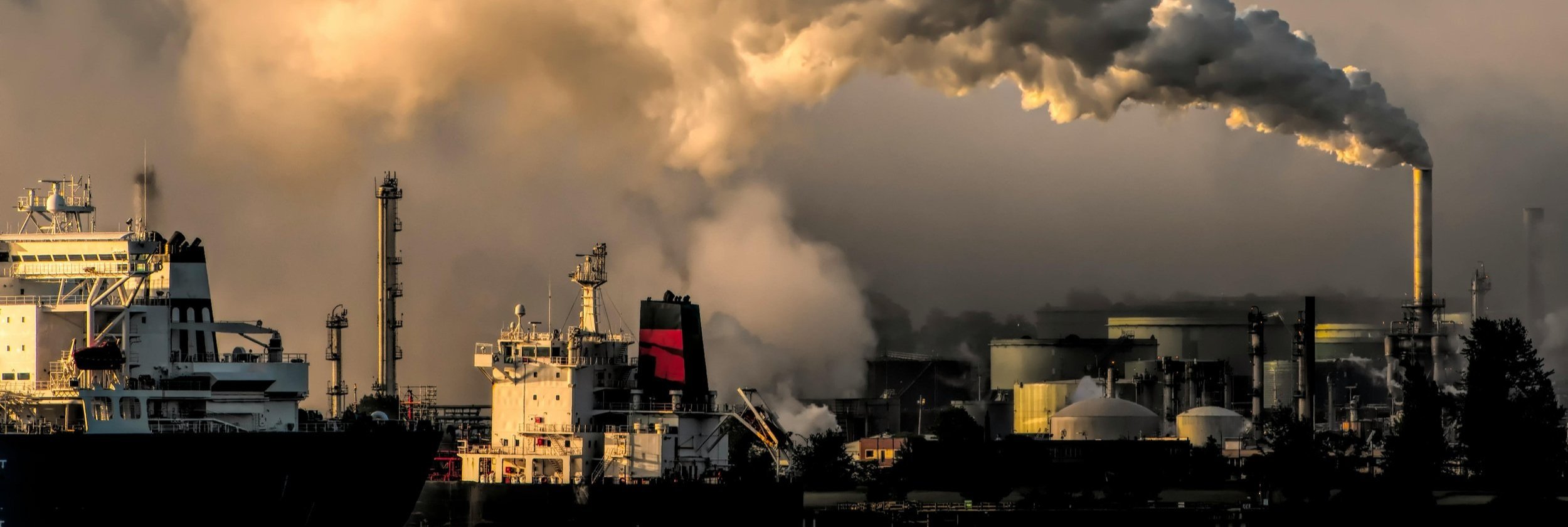New government has evidence it needs to support a wider Emissions Control Area and reduce shipping’s air polluting emissions: now it must act
Press Release
Study finds that a new Emission Control Area (ECA) on shipping in the North Atlantic Ocean would deliver significant emissions reductions benefits.
New UK government must get on board with evidence and confirm its participation in the scheme.
(Tuesday 16 July, 2024)
Recent research into the impact of an ECA in the North Atlantic Ocean confirms that there would be significant emissions reductions benefits if such an area were to be established.
The North Atlantic Emissions Control Area would mean stricter regulations on ships in designated areas, aimed at reducing and controlling their harmful emissions of sulphur oxides (SOx), fine particulate matter (PM2.5), and nitrogen oxides (NOx). The International Council on Clean Transportation (ICCT) study compared the proposed ECA to a scenario without ECA regulations and found that, dependent on the dominant method used to comply with the regulations, this ECA could lead to:
82% reduction in SOx emissions
64% reduction in PM2.5
36% reduction in black carbon (BC) emissions
If adopted, the proposed North Atlantic Emissions Control Area could be the world’s largest ECA, covering waters as far north as Greenland to as far south as Spain. Based on this analysis, the ICCT has recommended that the Atlantic ECA member states should include the full exclusive economic zones of Spain, Portugal, France, the United Kingdom, Ireland, Iceland, Faroe Islands, and Greenland in the geographic scope of the AtlECA. This would strategically connect the surrounding established or proposed ECAs, creating the largest low-emission shipping zone in the world.
An ECA currently exists in UK waters to the east and south in the English Channel and the North Sea, in which a sulphur cap of 0.1% and a NOx limit for newbuild ships (built after 2021) apply. In March this year, Opportunity Green, along with Transport & Environment, Green Alliance, the Nature and Biodiversity Conservation Union (NABU), Fundación Ecología y Desarrollo ECODES, ZERO, and the Clean Arctic Alliance, called on the UK government to extend the North Sea and English Channel ECA in UK waters.
As well as extending the ECA to all UK waters, the NGOs urged UK government to collaborate with neighbouring coastal states to establish an ECA beyond UK waters. If expanded in this way, it would enable to UK to link up into the proposed North Atlantic ECA.
Lord Deben, former Chair of the UK’s Climate Change Committee, says:
“This study is a key piece of evidence that countries have been waiting for, and its message is unequivocal – a North Atlantic ECA would lead to impressive emissions reductions. This is an especially important topic for the new UK government as UK waters experience heavy shipping traffic and are in the top three most-polluted North-Atlantic coastal states.”
Maritime shipping has traditionally relied on large diesel engines fuelled by heavy fuel oil (HFO), which emit harmful air pollutants like SOx and NOx. These emissions have strong adverse effects on air quality, particularly in coastal areas and are significant contributors to the formation of minute soot particles, known as PM2.5.
Blánaid Sheeran, Policy Officer at Opportunity Green comments:
“Shipping’s air polluting emissions pose substantial health risks, including respiratory diseases, cardiovascular diseases, and increased mortality. With such strong evidence that stricter regulations would reduce these harmful emissions, this is a key moment for the UK government. Confirming its support for the North Atlantic ECA would not only show commitment to public health and marine biodiversity but also enable them to lead on ambitious air pollution prevention and shipping decarbonisation policies.”
Ends
Notes to editors
Shipping is a polluting sector which has a significant impact on our climate, the air we breathe, and the biodiversity around us. Globally, ∼265,000 premature deaths were projected for 2020 (∼0.5% of global mortality) attributable to global shipping-sourced emissions. UK government commissioned research found that in 2020, UK domestic shipping alone accounted for:
12.7% of the UK’s total domestic nitrous oxides (NOx) emissions.
2.2% of its fine particulate matter (PM2.5) emissions.
4.9% of its total domestic sulphur dioxide (SO2) emissions.
NOx emissions cause significant ecological damage through eutrophication and acidification, damaging marine ecosystems. SOx emissions lead to severe health impacts, disproportionately impacting coastal and port communities. Once released in the atmosphere, SOx can also lead to acid rain, which impacts crops, forests and aquatic species and contributes to the acidification of the oceans.
The choice of fuels and technologies to comply with ECA regulations may result in different emissions reductions. This has important implications when considering what energy sources and tech solutions should be used and encouraged.
Fuel choice: Ultra-low sulphur fuel oil (ULSFO) would produce 9% more SOX, 55% more PM2.5, and 36% more BC emissions than using distillates.
Scrubbers: The heavy fuel oil used with the scrubbers would generate 17% more PM2.5 and 32% more BC emissions than distillate fuel use.
o Scrubbers are not the solution.
NOx: The IMO's Tier III standards for reducing NOX emissions (only applying to newbuild ships) will have a limited impact in the short term -- would reduce NOX emissions by 3% in 2030, assuming that the AtlECA comes into force in 2027. Retrofitting older ships sailing in the AtlECA to the Tier III standards could result in a 71% reduction in NOX emissions.
Opportunity Green is an NGO working to unlock the opportunities from tackling climate change using law, economics, and policy. We do this by amplifying diverse voices, forging ambitious collaborations and using legal innovation to motivate decision makers and achieve climate justice, with particular emphasis on the aviation and shipping industries.
Media contacts:
Blánaid Sheeran
Policy Officer, Opportunity Green
blanaid@opportunitygreen.org
Hannah Jolliffe
Communications Director, Opportunity Green
hannah@opportunitygreen.org

